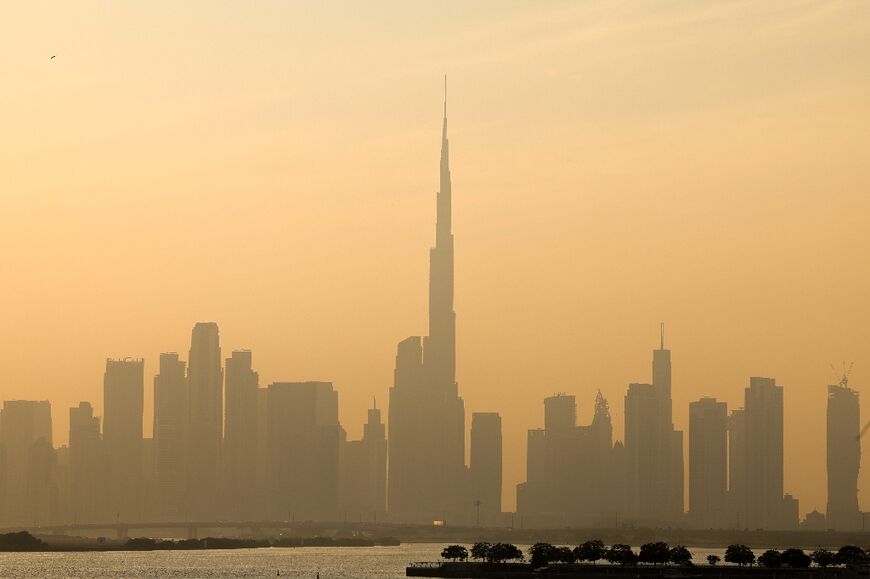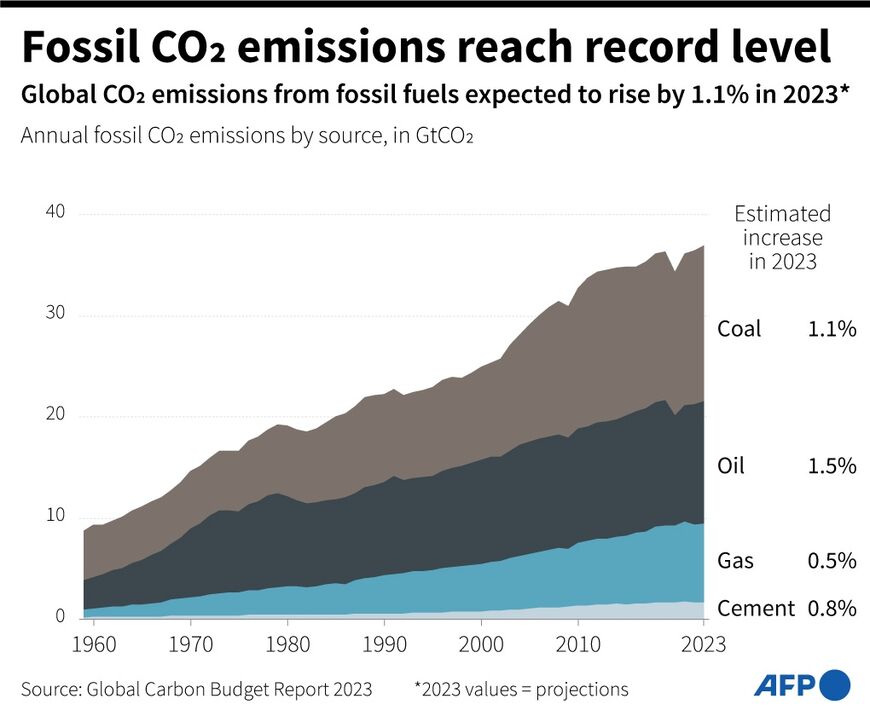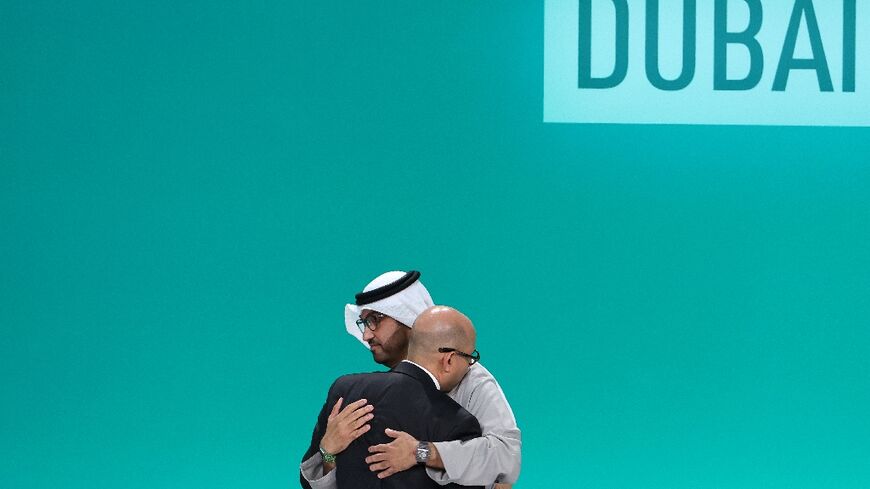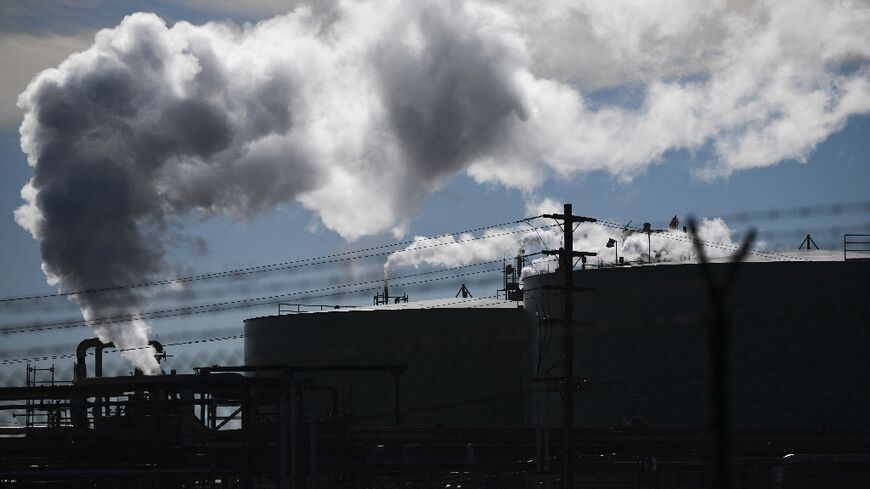Record fossil fuel lobbyists as climate talks face off hardens

Battle lines on coal, oil and gas hardened at the UN climate talks on Tuesday where activists said a record number of fossil fuel lobbyists outnumber nearly every delegation in Dubai.
The divide is so stark that a new draft agreement included options to phase out fossil fuels or not addressing the issue at all, setting the stage for tough negotiations due to end next week.
Saudi Arabia -- the world's biggest oil exporter -- took a hardline stance, saying it would "absolutely not" agree to phasing down fossil fuels, let alone phasing them out.
This came despite scientists warning Tuesday that global warming could breach the 1.5C limit within seven years.
The thorny debate over the future of fossil fuels, the largest contributor to global warming, is the key battleground at the COP28 meeting hosted by the oil-rich United Arab Emirates.
- Phase-out vs status quo -
The latest version of a potential agreement in Dubai included three options -- an "orderly and just" phase-out, faster efforts to phase out fossil fuel projects that do not capture and store emissions, or "no text" on the subject.
Red lines are already being drawn, with nations digging in on traditional positions that have dogged past COP negotiations.
Saudi Arabia's energy minister said he would "absolutely not" agree to a phase-down of fossil fuels in the COP28 agreement, questioning if such a transition was even possible.
But Germany's climate envoy Jennifer Morgan said transforming the global energy system was "the only option".
"Renewables are the future, the end of the fossil age must become tangible here at the COP," she said.
- 'Hypocrisy' -
Wealthy economies have been accused of hypocrisy for demanding an exit from fossil fuels while expanding their own hydrocarbon projects.
Pedro Luis Pedroso, a Cuban diplomat, said developing nations were being asked to make drastic economic changes without being provided adequate support.
"If an extremely poor country discovers oil, how can we tell them they can't touch it, if nobody helps them?" Pedroso, who heads a grouping of so-called Global South nations, told AFP.
Morgan said progress was being made but admitted that "sometimes it is sluggish, but that is normal at this stage," she said.
- 'Elephant in the room' -
Laurence Tubiana, the architect of the landmark Paris climate accord in 2015, said the negotiations are "difficult because we're at a stage where all options are on the table and we don't see a balancing point.
"It's normal at this stage but it seems particularly difficult because we're talking about the elephant in the room, which is fossil fuels," Tubiana told AFP.
However, US climate envoy John Kerry said he was sure negotiators would find a way forward.
"When you have 195 countries coming into the negotiation, it's hard," he told Singaporean broadcaster CNA.
Russian President Vladimir Putin is also visiting UAE on Wednesday but there was no word on whether the leader of one of the world's biggest fossil fuel producers would visit COP28.
- Record oil lobbyists -
Nearly 2,500 fossil fuel lobbyists -- a record -- have been accredited for UN climate talks in Dubai, campaign groups said.
The NGO umbrella group Kick Big Polluters Out said 2,456 people tied to fossil fuel interests were identified, roughly four times the number at COP27 last year.
If taken as a group they outnumber "every country delegation" apart from Brazil and the UAE, the coalition added.
Campaigners have worried about the influence of the fossil fuel lobby since Sultan Al Jaber, the head of the UAE's national oil company ADNOC, was named president of COP28.
Dozens of people protested inside the COP28 venue under blistering sun, holding up signs reading "Stop funding fossil fuels" and chanting "Kick big polluters out!"
"If the United Nations continues to allow the fossil fuel industry to lead COP... I have zero confidence that COP will be successful," Thomas Harmy Joseph, a member of the US-based Indigenous Environmental Network, told AFP.








